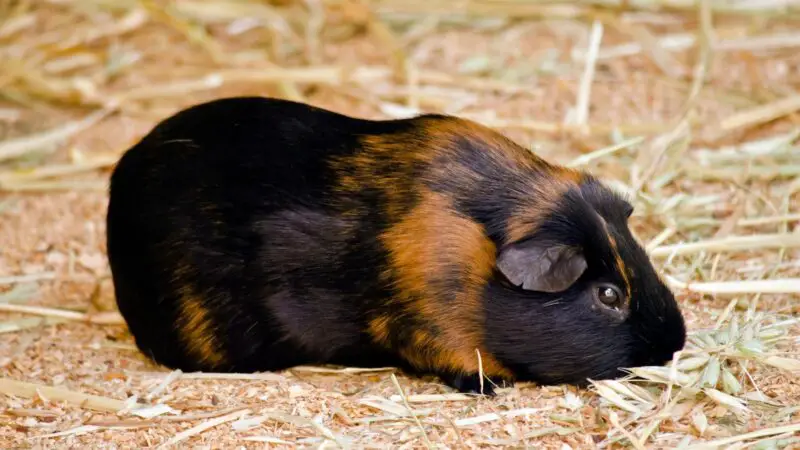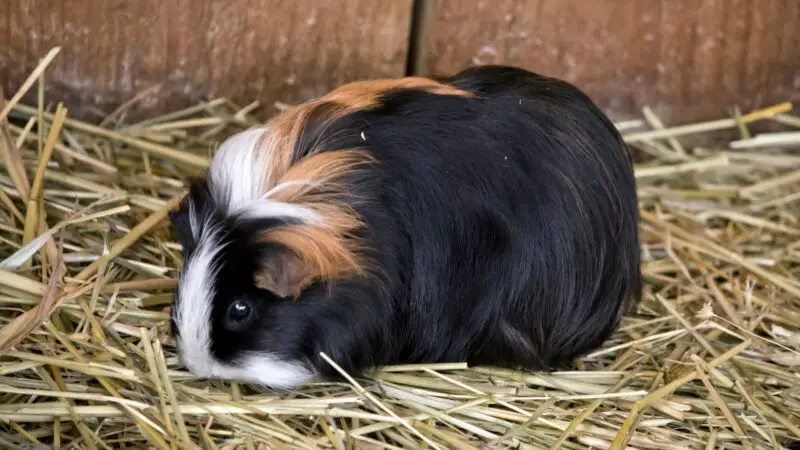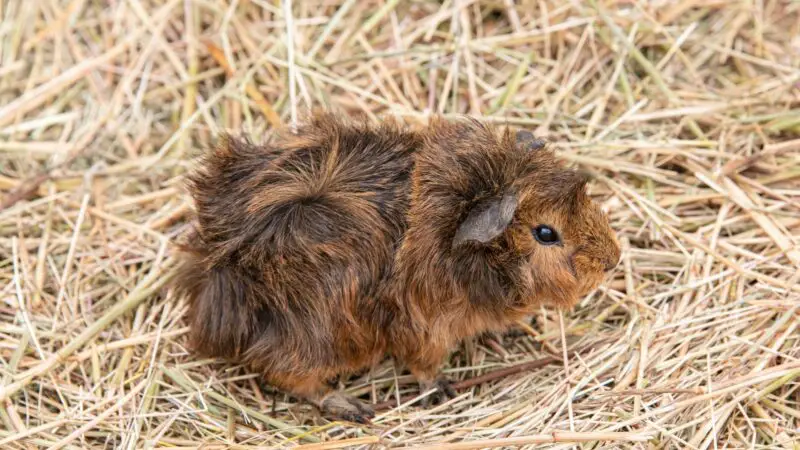Guinea pigs weren’t as well-known a decade or two ago as they are today, and as their fame grows, people are gradually learning more about these tiny animals. One of the things we learned is that allergies can occur in guinea pigs.
Guinea pigs can experience an allergic reaction to a certain substance, just like people. An allergic reaction to a particular food, medication, or in rare circumstances even particular bedding can occur in guinea pigs. If you suspect of this please visit vet immediately.
Do Guinea Pigs Have Allergies?

Allergic reactions in guinea pigs are possible. Depending on the cause of the allergy, an allergy can manifest itself in a variety of ways. These symptoms are sometimes serious and sometimes not. Take careful note of the symptoms listed below:
- Itchy eyes – Most common sign of an allergy. However, it’s much harder to spot this on your guinea pig since it can’t tell you directly. If you see a guinea pig trying to scratch its eyes or have a problem with the vision, that could indicate a possible allergic reaction.
- Consistent cough – The only reason for coughing is either flu or part of the food stuck in the throat. However, if that cough starts terrorizing your guinea pig, it’s critical that you seek medical attention.
- Skin rash – Very hard to notice since guinea pigs have fur. Luckily, skin rash is often followed by itchy skin, making the animal scratch a particular part of the body. Alternatively, if the itch is getting worse, a guinea pig can roll on the floor as it tries to scratch its skin.
- Sneezing – It’s very common for animals to sneeze, especially when it is outside or when there’s too much dust in the environment.
- Runny nose – A runny nose is when a guinea pig has excessive drainage that comes from nasal tissues in the nose. It is sometimes associated with asthma.
- Wheezing – It’s that high-pitch sound that comes from the chest while you breathe.
- Breath shortness – You’ll notice this one right away if your guinea pig isn’t as active as it was before. Shortness of breath will make it harder for it to breathe, causing a guinea pig to stop running and jumping around.
- Anaphylactic shock – It is a pretty serious medical condition in which the blood pressure suddenly drops, causing heavy breathing and even the inability to breathe.
Related: Guinea Pig Illnesses A-Z (Full List of Health Problems)
What Can Guinea Pigs Be Allergic To?

Not every guinea pig is the same; some are allergic to certain substances, while others are immune to that allergen. Some of the things that guinea pigs are allergic to are as follows:
- Chocolate – Guinea pigs also don’t handle chocolate very well. Animals are born to eat either grass or meat, and there isn’t a place for sweet food in their diet.
- Iceberg Lettuce – Guinea pigs love eating lettuce. But, iceberg lettuce is the least nutritious and can cause some stomach problems in guinea pigs. Some even say that certain kidney problems can occur, so evading it should be your priority.
- Penicillin – This substance is used in the treatment of various health problems and is known to have an immediate effect. But if the guinea pig is treated with penicillin, it can result in its death.
- Aloe Vera – It is excellent for people, puppies, and babies, but not for guinea pigs. The main allergic symptom of aloe vera allergy is the itchy skin that we mentioned before.
- Pine Bedding – Recently, it’s been discovered that guinea pigs can get a strong allergic reaction to pine bedding in the form of liver damage and itchy skin. Those two allergic reactions come from mites that live in the pine, and they can even bother people, not just animals.
- Cedar Shavings – Cedar bedding is known to have oil in it, and this oil is the culprit for the most allergic reactions in guinea pigs. Not only that it can evoke itchy skin and skin rash, but also cause some problems with internal organs.
What Are the Typical Allergy Responses in Guinea Pigs?

- Conjunctivitis – This is an inflammation of the eyes and results in itchy eyes and red eyes. If not treated well, it can be contagious and rapidly spread.
- Asthma – This condition causes heavy breathing caused by a strong respiratory reaction. Thankfully, its symptoms can be kept to a minimum.
- Rhinitis – It is one of the most irritating allergic reactions. During rhinitis, your nose canals are secreting an excessive amount of fluid which results in a stuffy and runny nose.
- Eczema – Eczema is a condition in which skin gets itchy and inflamed, often followed by a skin rash. This allergic reaction can be produced by pine or cedar bedding.
Guinea pigs can have serious allergic symptoms that we mentioned above. To significantly reduce the possibility of guinea pig allergy, you should avoid some of the food we mentioned, as well as pine and cedar bedding.
In case of a severe and non-severe allergic reaction, you should always visit a veterinarian. It’s essential to mitigate and eliminate these allergies as soon as possible. Best of luck!
List of Sources
Ocular Delayed Hypersensitivity: A Pathogenetic Mechanism of Chlamydial-Conjunctivitis in Guinea Pig
Allergic and Classically Conditioned Asthma in Guinea Pigs
Mite-Induced Allergic Airway Inflammation in Guinea Pigs
Nasal Hyperresponsiveness to Histamine Induced by Repetitive Exposure to Cedar Pollen in Guinea-Pigs
